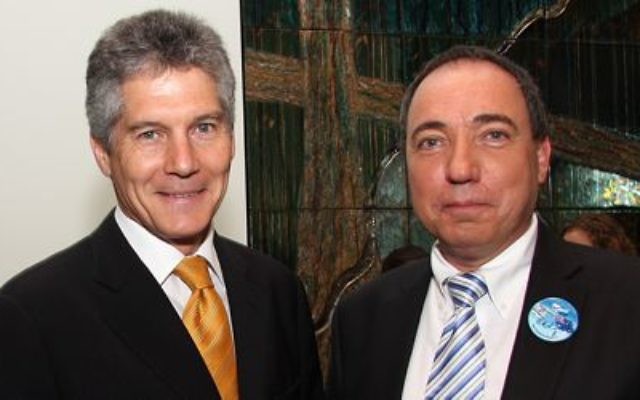Australia-Israel relations after the fall of Rudd
WITH Kevin Rudd having moved to the backbench following his leadership stoush with Julia Gillard, the question is who will be Australia’s next foreign minister.
WITH Kevin Rudd having moved to the backbench following his leadership stoush with Julia Gillard, the question is who will be Australia’s next foreign minister.
The Prime Minister announced on Monday that Minister for Trade Craig Emerson will fill the role temporarily until a decision was made for a permanent replacement.
Minister for Defence Stephen Smith, Minister for Regional Australia Simon Crean and Emerson himself have all been touted as possible candidates.
Smith is no stranger to the role having served as foreign minister during Rudd’s prime ministership, while Emerson has filled in periodically as acting foreign minister in the Gillard administration.
As foreign minister, Smith presided over the passports affair and the Gaza flotilla incident. Community leaders expressed concern at the time over the expulsion of an Israeli diplomat in response to the use of Australian passports in an alleged Israeli hit on a Hamas terrorist.
“It wouldn’t be unfair to say that the prime minister [Rudd] at that time had a strong involvement in the area,” said Australia/Israel and Jewish Affairs Council [AIJAC] executive director Colin Rubenstein.
But he added that Smith had been “working his way into the position” during that first stint and would now be “seasoned and experienced”.
“There’s a lot of water under the bridge and he’s had a lot of experience and would be operating in a different environment. So I think there’d be a very positive, strong comfort zone if he re-emerged in that position.”
Zionist Federation of Australia president Philip Chester said Smith had performed well as foreign minister. “He’s a pretty deliberate man in the sense that he’s pretty careful and thinks through issues in a deep way.”
Emerson is an alumni of AIJAC’s Rambam program, which sends politicians to Israel to learn the facts on the ground. As acting foreign minister he has condemned terrorist activities against Israel, and as trade minister condemned the NSW Greens’s Boycotts, Divestment and Sanctions policy, labelling it “reprehensible”.
“Craig Emerson is somebody we’ve got to know well,” Rubenstein said. “He’s also a very quick learner and I think very positive and quite knowledgable about the world and certainly about the Middle East.
“[And] Simon Crean, as a former leader, of course, and as a seasoned, mature politician and a steady hand, would frankly I think engender confidence no matter what portfolio he had. Certainly he’s somebody that’s demonstrated a sort of affinity with our community, and sympathy towards Israel and towards reconciliation in the Middle East.”
Chester agreed that all three would be suited to the position. “We’ll work well with whoever is appointed because our relationship with the government on issues concerning Israel is good, and we don’t expect whoever is appointed to fundamentally change the approach,” he said.
On Australia’s push for a United Nations Security Council seat, which media reported on Tuesday will continue despite the resignation of Rudd, its key backer, Chester was cautious. “If they do continue along that path I certainly hope that it doesn’t in any way affect or compromise decisions that they make or votes that they take in the UN concerning Israel and the Middle East,” he said.
Rubenstein played down the impact of Rudd’s UN Security Council bid on Australia changing a number of previously pro-Israel votes at the United Nations to abstentions. “I think it was one among a variety of factors.
“In terms of his pursuit of Israeli-Palestinian reconciliation, no one could doubt his sincerity in wanting to make a positive contribution to that outcome. There no doubt he was very genuine in that pursuit.”
GARETH NARUNSKY
Stephen Smith (left) with Israeli Ambassador Yuval Rotem (Photo: Peter Haskin)


comments